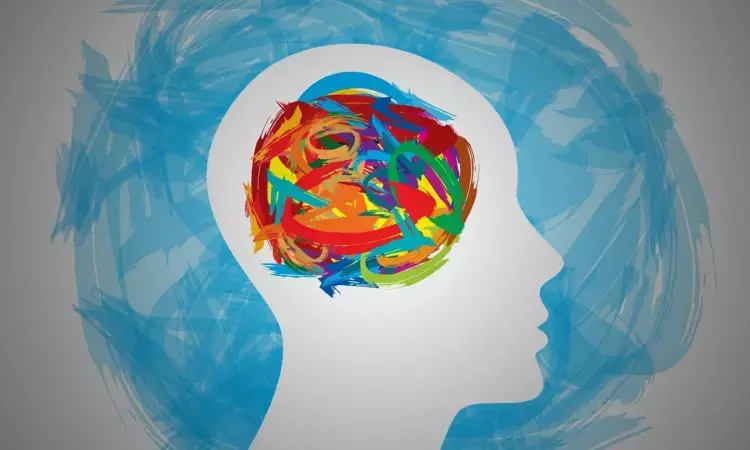- Home
- Medical news & Guidelines
- Anesthesiology
- Cardiology and CTVS
- Critical Care
- Dentistry
- Dermatology
- Diabetes and Endocrinology
- ENT
- Gastroenterology
- Medicine
- Nephrology
- Neurology
- Obstretics-Gynaecology
- Oncology
- Ophthalmology
- Orthopaedics
- Pediatrics-Neonatology
- Psychiatry
- Pulmonology
- Radiology
- Surgery
- Urology
- Laboratory Medicine
- Diet
- Nursing
- Paramedical
- Physiotherapy
- Health news
- Fact Check
- Bone Health Fact Check
- Brain Health Fact Check
- Cancer Related Fact Check
- Child Care Fact Check
- Dental and oral health fact check
- Diabetes and metabolic health fact check
- Diet and Nutrition Fact Check
- Eye and ENT Care Fact Check
- Fitness fact check
- Gut health fact check
- Heart health fact check
- Kidney health fact check
- Medical education fact check
- Men's health fact check
- Respiratory fact check
- Skin and hair care fact check
- Vaccine and Immunization fact check
- Women's health fact check
- AYUSH
- State News
- Andaman and Nicobar Islands
- Andhra Pradesh
- Arunachal Pradesh
- Assam
- Bihar
- Chandigarh
- Chattisgarh
- Dadra and Nagar Haveli
- Daman and Diu
- Delhi
- Goa
- Gujarat
- Haryana
- Himachal Pradesh
- Jammu & Kashmir
- Jharkhand
- Karnataka
- Kerala
- Ladakh
- Lakshadweep
- Madhya Pradesh
- Maharashtra
- Manipur
- Meghalaya
- Mizoram
- Nagaland
- Odisha
- Puducherry
- Punjab
- Rajasthan
- Sikkim
- Tamil Nadu
- Telangana
- Tripura
- Uttar Pradesh
- Uttrakhand
- West Bengal
- Medical Education
- Industry
Strabismus in children associated with mental disorders: JAMA

USA: A new cross-sectional study conducted by Yoon H. Lee and team found that strabismus is associated with anxiety disorder, bipolar disorder, schizophrenia, and depressive disorder, but not drug use disorder. The findings of this study were published in the journal JAMA Ophthalmology.
Children with strabismus are known to have a poorer functional vision and a lower quality of life than children who do not have strabismus. As a result, the purpose of this study was to look at the relationship between strabismus and mental disorder in youngsters.
This cross-sectional study looked at claims data of the Optum Labs Data Warehouse which is a longitudinal de-identified commercial insurance claims database, from 12 005 189 individuals who were enrolled in the health plan between January 1, 2007, and December 31, 2017. Eligibility requirements included being under the age of 19 at the time of strabismus diagnosis, being enrolled in the health plan between 2007 and 2018, and having at least one strabismus claim based on International Classification of Diseases, Ninth Revision, Clinical Modification, and International Statistical Classification of Diseases and Related Health Problems, Tenth Revision, Clinical Modification codes. Children in the same database who had no eye illness codes other than refractive error served as controls. Demographic variables and claims of mental illness were compared.
The results of this study were as follow:
1. The adjusted odds ratios for the connection of mental disorders with strabismus among the 12 005 189 patients in the research were 2.01 for anxiety disorder, 1.83 for schizophrenia, 1.64 for bipolar disorder, 0.99 for substance use disorder, and 1.61 for depressive disorder.
2. There was a moderate connection between each form of strabismus and anxiety disorder, schizophrenia, bipolar disorder, and depressive disorder; odds ratios ranged from 1.23 for esotropia and bipolar disorder to 2.70 for exotropia and anxiety disorder.
In conclusion, from the findings of this study recognizing the existence of these correlations should stimulate mental illness screening and treatment for strabismus sufferers.
Reference:
Lee YH, Repka MX, Borlik MF, et al. Association of Strabismus With Mood Disorders, Schizophrenia, and Anxiety Disorders Among Children. JAMA Ophthalmol. Published online March 10, 2022. doi:10.1001/jamaophthalmol.2022.0137
Keywords: strabismus, schizophrenia, anxiety, mood disorder, bipolar, JAMA, depression, ophthalmology, psychiatry, mental disorder,
Medical Dialogues consists of a team of passionate medical/scientific writers, led by doctors and healthcare researchers. Our team efforts to bring you updated and timely news about the important happenings of the medical and healthcare sector. Our editorial team can be reached at editorial@medicaldialogues.in.
Dr Kamal Kant Kohli-MBBS, DTCD- a chest specialist with more than 30 years of practice and a flair for writing clinical articles, Dr Kamal Kant Kohli joined Medical Dialogues as a Chief Editor of Medical News. Besides writing articles, as an editor, he proofreads and verifies all the medical content published on Medical Dialogues including those coming from journals, studies,medical conferences,guidelines etc. Email: drkohli@medicaldialogues.in. Contact no. 011-43720751


